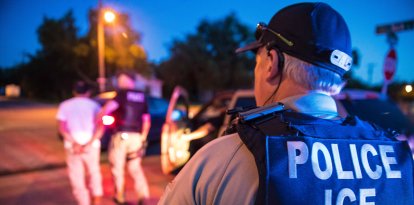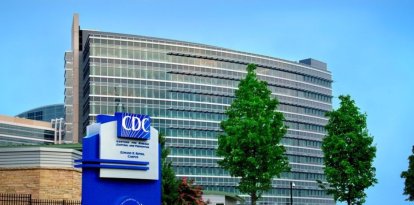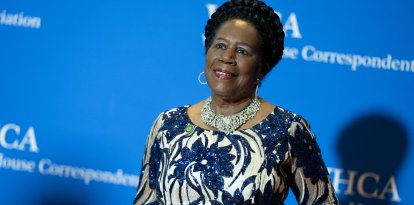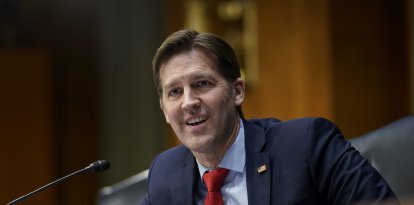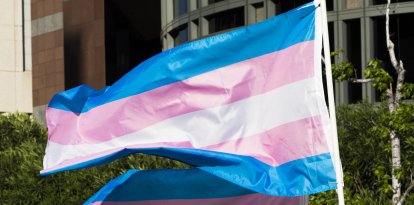9/11: The Fight Goes On
Nearly 3,000 people lost their lives in the attacks that paralyzed the world.
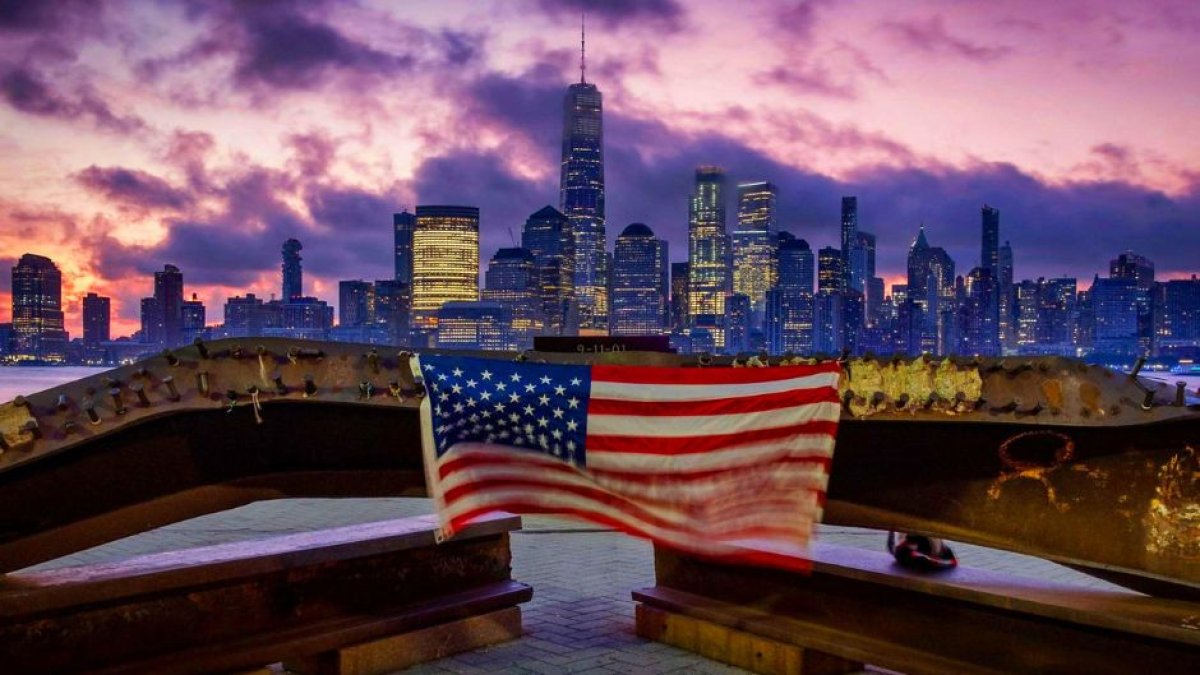
Ron Cogswell
This Sunday marks 21 years since the entire world was paralyzed and witnessed through the media as the United States suffered the largest terrorist attack in history.
Four commercial airliners hijacked by the Al Qaeda terrorist organization - led by the previously almost unknown Osama bin Laden - caused the collapse of the iconic Twin Towers in New York City and the partial collapse of the Pentagon in Washington DC. A fourth plane crashed in an open field in Pennsylvania.
Pain was felt not only by the 2,977 people we lost and their families, but for all those injured and for individuals working or living in the affected areas, who were evicted and could not return to their homes until several months later.
However, 9/11 is also a symbol of survival. The World Trade Center memorial that remembers the victims synthesizes the events of the past and the capacity of the United States to overcome and move forward.
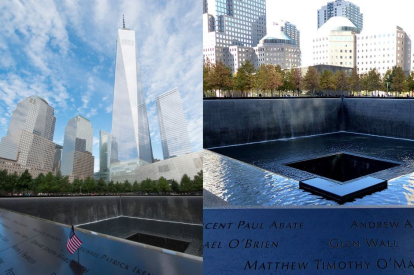
Al Qaeda
Al-Qaeda is a jihadist terrorist organization founded in the late 1980s by Saudi millionaire Osama bin Laden. It first functioned as a logistical support network for Muslim forces resisting the Soviet Union's invasion of Afghanistan, and by the 1990s it became an organization that recruited from all throughout the Islamic world.
With the dissolution of the Soviet Union, Al Qaeda had a new enemy in its sights: the United States. The reasons: military support to Israel, the American presence on military bases in Saudi Arabia and what they considered as aggressions against Muslim people.
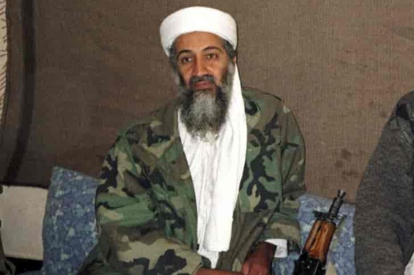
The facts
The attack was perpetrated by 19 suicide bombers who divided into four groups and hijacked four commercial airliners.
Departing from Boston, Washington-Dulles and Newark airports, the four hijacked planes had a common destination: California. Their tanks were full of fuel. According to the black boxes from the planes, the hijackers were carrying box cutters, which they used to kill the flight attendants and pilots.
The first two hijacked planes - American Airlines and United Airlines - flew over New York City. The first caused terror when it hit the North Tower at 8:49 am. In that building, two companies with offices between the 93rd and 105th floors lost 1,000 workers. The second aircraft's impact on the South Tower occurred only 17 minutes later.
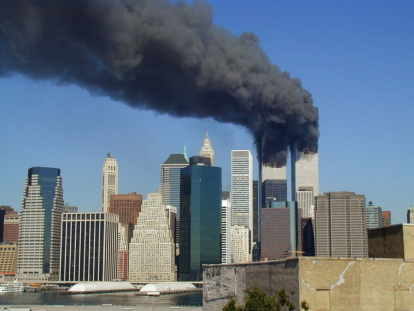
9/11
In less than two hours, the South Tower collapsed, which was the second tower to be attacked. The North Tower was still standing, but not for long. In a matter of 30 minutes it too collapsed.
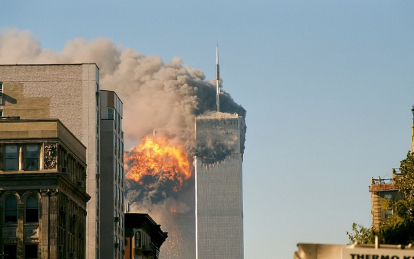
09/11
The third plane - from American Airlines -altered its course to hit the Pentagon. The fourth - from United Airlines - failed to hit the Capitol or the White House thanks to the passengers and crew members’ resistance who confronted the terrorist commando. That plane crashed into a field in Pennsylvania.
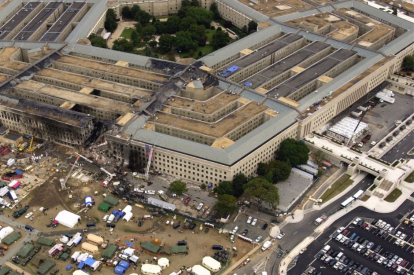
Balance of casualties
9/11 was the terrorist attack that claimed the most victims. Some 2,700 people died in the Twin Towers; another 265 died on the planes (including the 19 suicide bombers); 125 people were killed in the Pentagon.
Of the 750 members from various fire departments who entered the towers to attend to the 14,000 people inside of them, 343 died that day and around 250 were left with life-long injuries.
There are still 24 people on the missing persons list.
It is estimated that 25,000 people were injured.
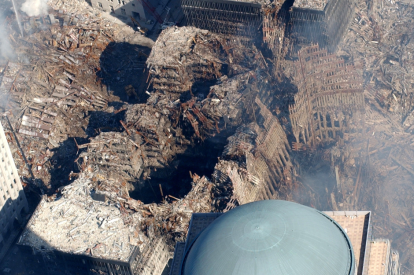
09/11
Reaction from the Bush Administration
One month after the attacks, with George W. Bush as president, the so-called War on Terror began with the invasion of Afghanistan. The Taliban, which was accused of protecting and harboring terrorists, was quickly overthrown. In 2003, Bush and his allies coordinated the war in Iraq, where the dictator Saddam Hussein was overthrown.
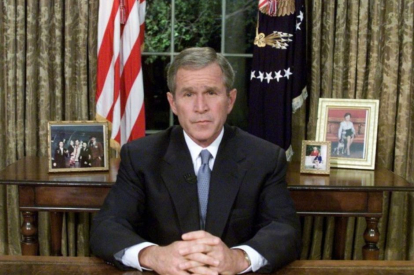
In May 2011, U.S. special forces killed Osama bin Laden in a surprise raid on his Pakistan hideout. Ten years later, coinciding with the 20th anniversary of the September 11, 2001 attacks, Joe Biden ended the US military intervention in Afghanistan: a withdrawal of troops that surprised the international community with the Taliban’s return to power.
21 years later, the struggle continues
The World Trade Center Health Program, designed to benefit rescue teams affected by the attack, has a $3 billion funding deficit.
John Feal, a worker who lost a foot while working at Ground Zero in the aftermath of the attacks, founded the FealGood Foundation to raise support for rescuers who still suffer numerous health problems from the aftermath of the attacks. Feal told Fox News that he is pressing lawmakers to take action on the program’s funding deficit.




















